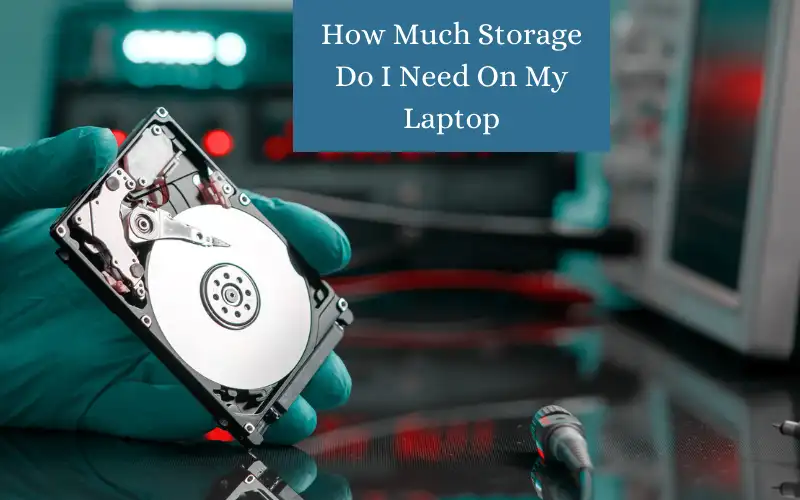Most computer users especially beginners don’t know how much storage they need on laptop? It can be tricky to answer especially if you’re not sure what factors to consider determining storage requirements. So in this blog post we will break down how much storage memory is perfect for the desired computing requirement.
How Much Storage Do I Need On My Laptop
When it comes to storage there are some important factors you need to take into account. The first is file size. How large are the files you’ll be working with daily? If you’re dealing with primarily small documents and images you won’t need as much storage as someone who works with video or audio files.
Another thing to consider is applications you’re going to run on laptops such as high intensive software that will take many bunches of storage. We’ll discuss storage needed for gaming personnel usage graphics designing and more.
So whether you’re looking to buy your first Laptop or upgrade the one you already have read on for some helpful tips!
Storage Space Needed in Laptop for Personnel Use
A high Laptop’s internal storage memory is vital for many reasons. Because it allows you to keep your files and important data safe and sound without sacrificing your essential data to free up some space on your computer’s hard drive; in addition it can be used to store backups of your files in case of a crash or other unforeseen event without using any external hard drive.
And if you travel frequently it can be a lifesaver by giving you a place to store all of your essential documents and files while you’re on the go. But how much storage space do you need for personal use? That depends on a few factors.
If you have many personal files photos or videos you’ll need more storage than someone who only uses their Laptop for email and web browsing. 512 GB or 1 TB storage is recommended for personal use to handle such storage requirements. Although the cost of a laptop will be higher with big storage drive but it is recommended.
Storage Space Needed for Gaming
When it comes to storage space for gaming the amount you need will depend on the types of games you like to play and how often you play them. For example if you only play a few games and don’t mind re-downloading them every time you want to play you won’t need much storage space.
However if you have an extensive collection of games and want to access them quickly and easily you’ll need more storage space. I recommend a 1 TB or 2 TB storage drive to store an extensive collection of fun.
I need to mention that most gaming consoles now come with built-in storage memory so you shouldn’t have to worry about buying a higher internal storage or external storage device.
Furthermore in addition external hard drives will be perfect for storing and playing games and it is much easier to upgrade. This will even be handy for carrying games wherever you go.
Moreover if you’re a pro gamer always try to buy a gaming laptop.
Video Editing and Graphics Designing
When it comes to video editing and graphics designing the amount of storage you need for a laptop will vary depending on the project you’re working on and the software you’re using. For example if you’re working on a simple task with basic graphics you won’t need as much storage for a complex project with high-resolution video and images.
However it’s a good idea to have at least 250 GB of storage for your video editing and graphics designing needs. This will give you plenty of space for your projects and any software or fonts you need to install. But to handle large video files go with a larger drive like 1 TB or 2 TB.
Also you can go with 512 GB of storage and if you ever need more storage it is easy to upgradeable internal storage or adds an external hard drive to your setup. And also make sure your system has a fast processor a good amount of RAM and a high-processing GPU to render video processing smoothly and also speed up laptop performance.
